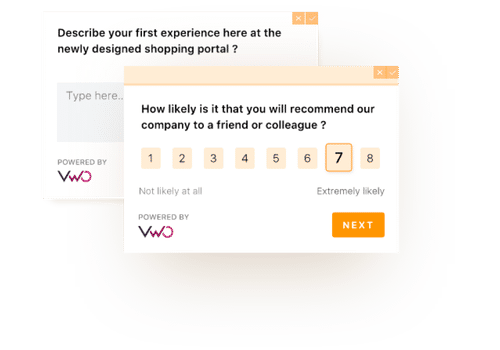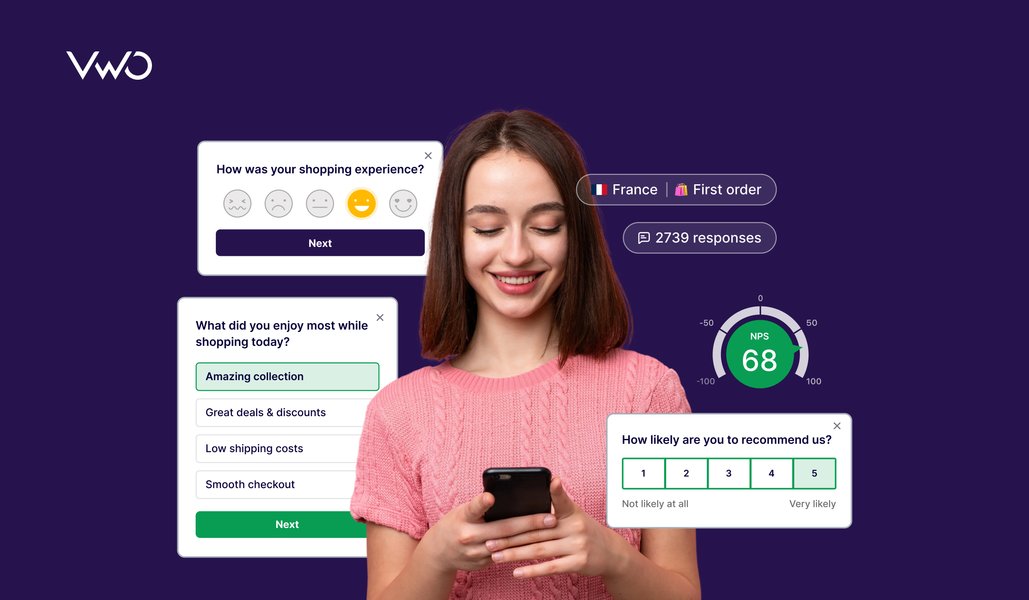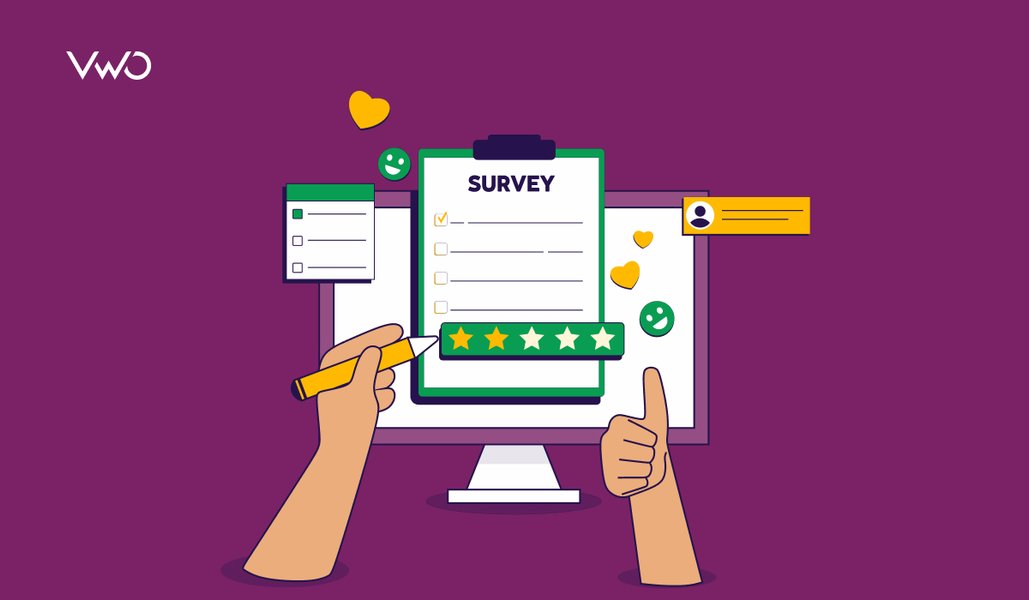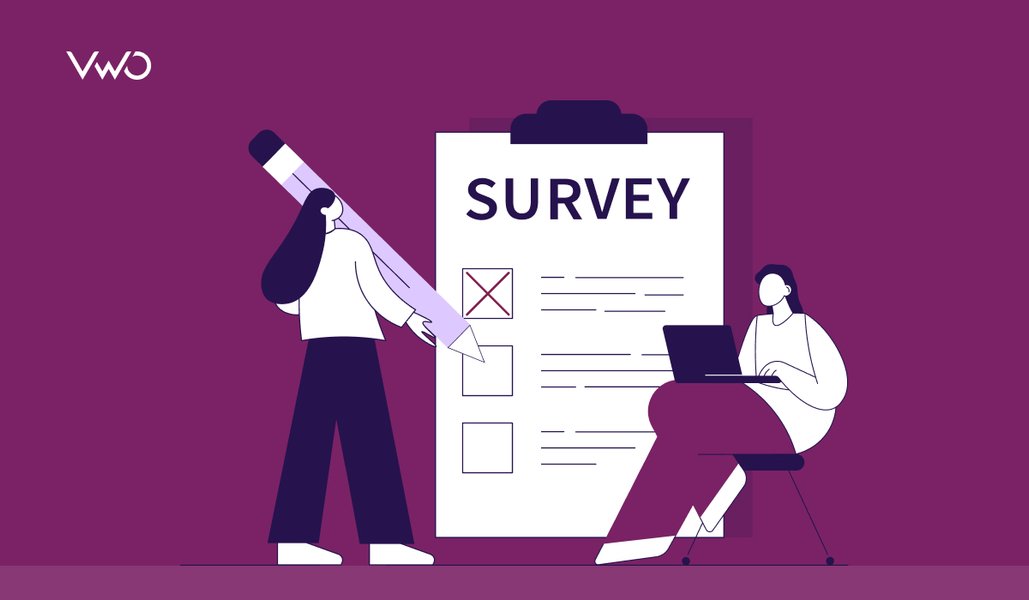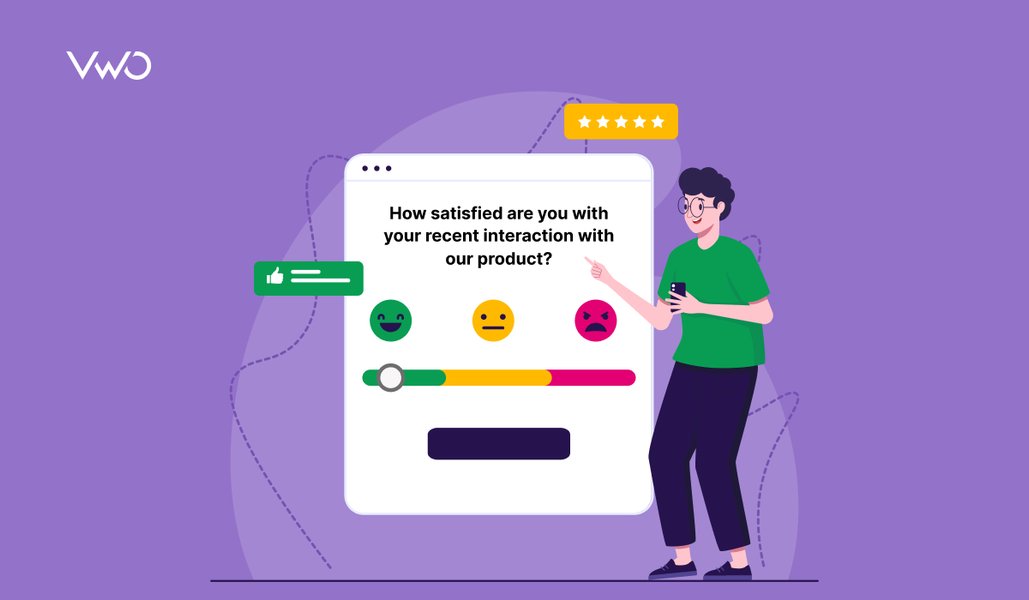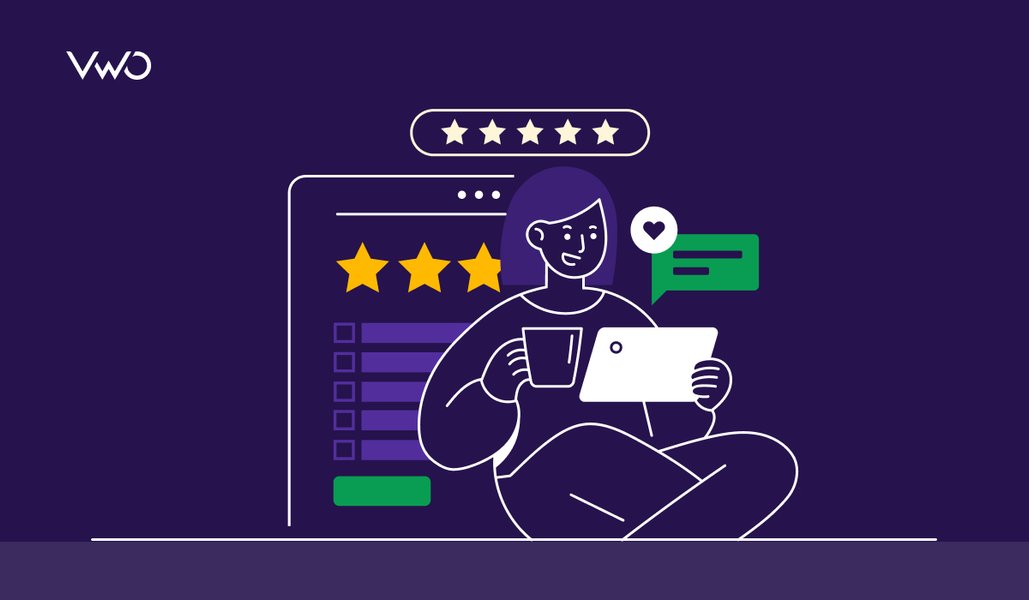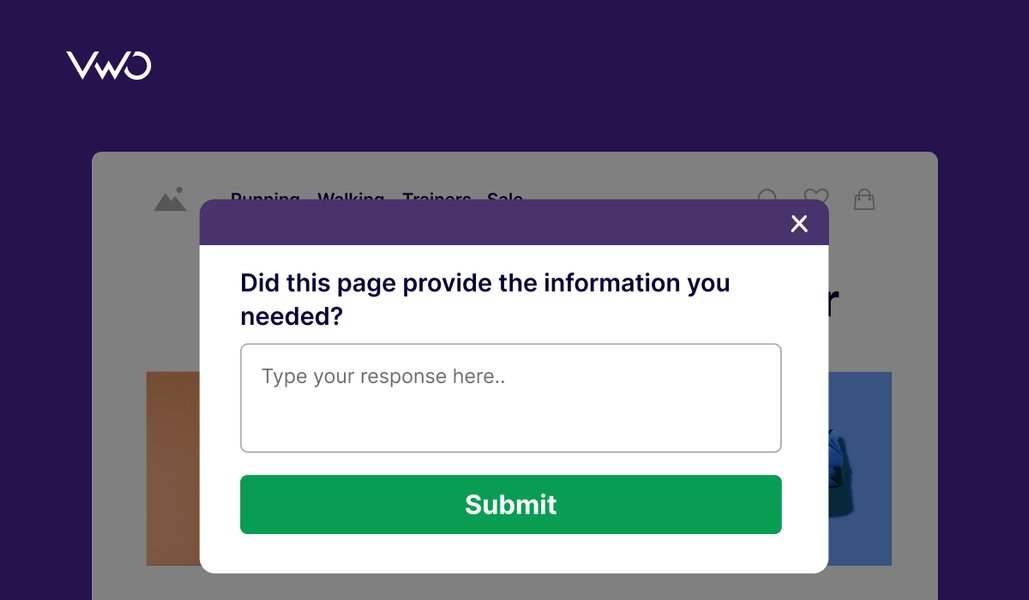12 Best Customer Feedback Analytics Software for 2026
In an age where a single review can influence buying decisions, understanding customer feedback isn’t just important, it’s business-critical.
In fact, a recent report by Deloitte shows that customer-centric companies are 60% more profitable than those that aren’t.
The takeaway? Businesses that actively analyze and act on customer input gain a clear competitive edge.
But acting on feedback requires more than just collecting it. Not all feedback tools are built to deliver the depth, speed, or clarity that modern businesses need. While many platforms stop at basic surveys, the most effective customer feedback analytics software goes further; it spots patterns in real time, understands how customers feel across large volumes of feedback, and ties those insights directly to measurable outcomes.
In this roundup, we’ve curated the top 12 tools for 2026 that deliver valuable customer insights, helping teams listen more effectively, analyze data more intelligently, and respond faster to what customers truly need.

12 Top customer feedback analytics software: Detailed overview
- SurveyMonkey
- Sogolytics
- SurveySparrow
- VWO
- Zonka Feedback
- Chattermill
- SentiSum
- Thematic
- Brandwatch
- SupportLogic
- Usersnap
- Dovetail
Disclaimer: The pros and cons listed are based on reviews and feedback from third-party sites such as G2, TrustRadius, and other sources.
Survey-only or survey-first tools
1. SurveyMonkey – General purpose survey creation

SurveyMonkey is a survey and feedback platform that helps businesses gather and analyze customer, product, and market insights with ease. Its intuitive design and customizable templates simplify survey creation.
The AI-powered SurveyMonkey Genius delivers real-time visualizations, sentiment analysis, and keyword trends. This enables teams to quickly interpret open-ended responses, spot patterns, and make informed decisions to enhance customer success and experiences.
Features
AI-Powered Tools, Multi-Survey Analysis, Response Tagging, SurveyMonkey Audience For Targeted Insights, Advanced Filtering, Export Options (CSV, PDF, XML), Custom Dashboards, Custom Reports, Sentiment Analysis, Text Analysis
Pricing
- Free sign-up is available.
- Individual plans start at $39/month, billed annually.
- Team plans start at $30/user/month, billed annually, minimum 3 users.
Pros:
- The real-time dashboard allows quick and easy sharing of insights with stakeholders.
- Built-in AI tools simplify survey creation and save valuable time.
Cons:
- Conditional logic can feel a bit tricky to manage in longer surveys.
- Advanced reporting features and user permissions are only available in higher-tier plans.
2. Sogolytics – Enterprise-grade survey platform

Sogolytics is an experience management platform that helps organizations collect, analyze, and act on customer feedback. The SogoCX capability helps businesses uncover key drivers behind responses using advanced analytics, real-time tracking, and customizable reports. From survey creation to actionable insights, it enables businesses to uncover trends and drive meaningful improvements across customer experience touchpoints.
Features
AI-Based Survey Creation, Text Analysis Report, Segmentation, Filters, Cross-Tab & Statistical Reports, Participation Tracking Dashboard, Real-Time Reports, Downloadable & Shareable All-In-One Reports, Predictive Analytics
Pricing
- Free trial: Available on all paid plans with limited-time access to premium features.
- Free plan: Lifetime access to basic features.
- Paid plans: Begin at $25/month, billed annually.
Pros:
- Robust tracking and analytics make it easy to monitor responses and gain insights.
- Customer support is responsive and helpful, always providing quick and effective solutions.
Cons:
- Saving and reusing reports or filters can sometimes be a bit tricky to navigate.
- It would be helpful to get reminders before the nonprofit license expires, as it can lapse without notice.
3. SurveySparrow – Omnichannel survey automation

SurveySparrow offers chat-style surveys that boost engagement and response rates across web, mobile, email, and offline channels. Its intuitive dashboards help track NPS, CSAT, and CES while highlighting key trends to enhance customer experience. The CogniVue feature adds predictive analytics, enabling deeper sentiment detection and smarter decision-making.
Features
Visual Workflows, Conditional Logic Branching, Conversational Surveys, Executive Dashboard, Sentiment Analysis, Multilingual Surveys, NPS Score, Offline Surveys, Ticket Management, Video Surveys, Survey Builder With Conditional Logic Branching, Custom Domain Hosting, Transactional Surveys, NPS Surveys
Pricing
- Free trial: 14 days for the Business plan features.
- Free plan: Lifetime access with basic features- create up to 3 surveys with 10 questions each and collect up to 50 responses per month.
- Paid plans: Start at $19/month, billed annually.
Pros:
- Highly customizable surveys with multiple sections, diverse question formats, and stack-ranking options enhance both structure and engagement.
- The conversational, chat-like survey format feels interactive and encourages higher participation.
Cons:
- Advanced analytics and reporting options may be limited in some plans.
- Data tagging is basic, with only one tag field available per response.
4. VWO – Customer feedback to measurable on-site impact
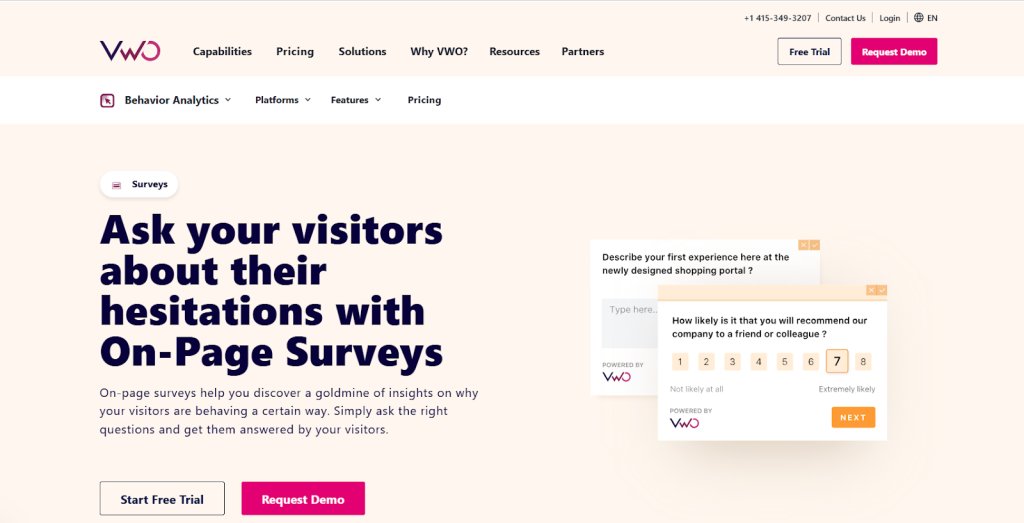
VWO Surveys, part of the VWO Insights suite, lets you pair user feedback with behavioral data from heatmaps, session recordings, and form analytics.
This combined view helps teams spot friction more accurately and test improvements via A/B experiments, all within the same experience optimization platform.
Smart triggers like exit intent and scroll depth enable targeted feedback from specific segments. VWO supports flexible formats (NPS, checkboxes, star ratings), conditional branching, brand styling, and multilingual surveys for a consistent global experience.
Powered by Copilot AI, it helps generate goal-aligned questions, summarizes responses, and suggests UX improvements for faster, more actionable analysis.
Advanced segmentation and filtering, by URL, source, device, or behavior, make it easy to prioritize issues and uncover trends. With its feedback-to-experimentation workflow, VWO turns insights into measurable conversion gains.
Create impactful surveys by blending closed- and open-ended questions, then use VWO Copilot to generate goal-driven, balanced questions. Add in-report observations for context, and easily download and share results to keep your team aligned and insights actionable.
Features
Brandable Surveys, Conditional Branching, Advanced Filtering, AI-Powered Survey Creation, Multiple Question Types, Targeted Follow-Ups, AI-Summarized Survey Reports, Behavioral Analytics, A/B Testing, Program Management
Pricing
- Free trial: 30 days with full feature access.
- Paid: Custom pricing options based on your business goals.
Encyclopedia Britannica enhanced its digital experience by using VWO’s on-page surveys and testing tools to uncover user behavior, validate content strategies, and increase engagement. This resulted in a 10% lift in click-through rates and faster decision-making across teams.
Start your 30-day free trial and experience the full power of VWO’s website insights.
Pros:
- Offers a wide range of features that are easy to set up and use.
- Customer support is responsive and helpful.
Cons:
- Focused on web-based delivery. Expanding native multichannel capabilities could expand reach.
5. Zonka Feedback – AI-powered CX & feedback

Zonka Feedback is a multichannel experience management platform that collects feedback through surveys across tablets, kiosks, web, email, and SMS. Its AI-powered analytics, instant alerts, and intelligent routing help businesses monitor sentiment, identify issues, and act quickly. With automated follow-ups and detailed reporting, it enables teams to close the feedback loop, reduce churn, and enhance customer experience.
Features
In-Product Feedback, Sentiment Analysis, AI Survey Editor, Automatic Tagging, Website Feedback, AI Translations & Summaries, NPS, Customizable Workflows, Text Analysis, AI-Driven Platform, CSAT, Advanced Reporting, AI Analytics.
Pricing
- Free trial: 14-day access to all paid features.
- Free plan: Includes basic and limited feedback features.
- Paid plans: Begin at $49/month, billed annually.
Pros:
- Helpful for collecting customer feedback at checkout and after purchase through SMS surveys.
- The real-time dashboard provides clear insights into what’s working well and where improvements are needed.
Cons:
- Subscriptions come with limited user licenses, which may restrict access for larger teams.
- Some users may find the navigation less intuitive, as key features are nested under different sections.
Multi-source feedback tools (Surveys + Reviews + Support + Chat + Social)
6. Chattermill – Unified VoC analytics

Chattermill is an AI-powered customer feedback analytics platform that helps businesses understand and act on the voice of the customer at scale. By unifying data from reviews, support tickets, social media, and conversations, it enables CX, Product, Marketing, and Support teams to uncover expectations, identify pain points, and break down data silos. Purpose-built for customer experience, Chattermill uses deep learning to reveal patterns and key drivers of satisfaction, empowering more customer-centric decisions.
Features
Automatic AI Tagging, AI-Generated Summaries, Unified Feedback Insights, Insight Prioritization, Real-Time Alerts, Sentiment Analysis, Impact Analysis, Team Dashboards, Workflows, Copilot
Pricing
- Custom quotes are available on request.
- A demo can be arranged.
Pros:
- Automatically summarizes and groups sentiments, making it easy to view related tickets under one clear phrase.
- Provides detailed, actionable insights that support smarter decisions and improve service quality.
Cons:
- Sentiment analysis could be improved for better accuracy in certain cases.
- Adding advanced features like predictive analytics and trend forecasting could enhance the depth of insights.
7. Sentisum – Support ticket insights

SentiSum’s AI-powered platform specializes in analyzing customer support conversations to deliver actionable feedback and enhance customer experience. It focuses on contextual sentiment analysis and automated tagging across emails, chats, voice calls, and CSAT surveys, offering consistent and accurate insights in over 100 languages.
The real-time dashboard enables CX teams to track trends, uncover key satisfaction drivers, and make informed decisions. By simplifying complex support data, SentiSum places the voice of the customer at the center of business strategy.
Features
Feedback Analytics AI, CSAT Analytics, Social Monitoring, Speech Analytics, Support Ticket Analytics, Automated Tags, Auto-Prioritization, Automations
Pricing
- Plans are not available on the website.
Pros:
- The tool is easy to navigate, and training the AI for accuracy is simple and effective.
- It’s helpful to view data both at a high level and in detailed, granular formats.
Cons:
- Due to its breadth of capabilities, there may be a learning curve in fully leveraging all features.
- The visual design of the reports could be improved for a more polished experience.
8. Thematic – AI text feedback analytics

Thematic helps businesses uncover meaning in open-ended feedback by turning raw text from surveys, reviews, and conversations into structured, prioritized insights. Its AI-driven platform automatically identifies themes, sentiment, and key drivers across all channels, enabling CX, product, and research teams to spot issues, track trends, and act faster. With real-time dashboards and automated workflows, Thematic makes it easy to align decisions across teams and improve customer experience at scale
Features
Product Feedback, Customer Experience, Contact Center Analysis, Unified Data Analytics, Tags, Sentiment Analytics, Workflows, Automations, Dashboards & Reporting, Summaries
Pricing
- Foundation plan: $25000/year.
- Customized plans are available for the Enterprise level.
Pros:
- The dashboard is user-friendly, with clear report visibility and accurate data that supports better decision-making.
- The user interface is clean, simple, and easy to navigate.
Cons:
- It would be helpful to have direct integration with data warehouses.
- NPS and sentiment scoring could be more aligned with the actual tone of customer feedback.
9. Brandwatch – Social listening & analysis

Brandwatch is a social media monitoring platform that helps brands turn online conversations into actionable consumer insights. Leveraging extensive data sources, including Reddit, Tumblr, Twitter, and proprietary crawlers, it captures posts, comments, and conversations across the web.
These are then intelligently segmented into categories like feedback and opinions, and analyzed using AI to surface meaningful trends, sentiment, and emerging issues. With features like automated signals, smart classifiers, and a real-time dashboard, Brandwatch ensures insights are delivered to the right teams quickly, empowering data-led decisions, backed by expert customer support.
Features
Search, Audience Segmentation, Automated Reporting & Alerts, Social Media Management, Influencer Marketing, Dashboards
Pricing
- Pricing is not available on the website.
- A demo can be requested.
Pros:
- Dashboards are clear and easy to navigate, with custom alerts that help respond quickly to shifts in sentiment.
- Access to deep historical data and a wide range of sources offers a complete view of consumer opinion, supporting informed, data-driven decisions.
Cons:
- Navigation between pages could be more intuitive, especially when searching for specific information.
- The platform can feel a bit overwhelming at first due to the volume of data and features.
10. SupportLogic – AI support experience insights

SupportLogic is a continuous support experience (SX) platform that enables organizations to act on the voice of the customer in real time. Using AI, Natural Language Processing (NLP), and Machine Learning (ML), it analyzes structured and unstructured data from support tickets and service interactions to extract sentiment signals and identify urgent issues.
The platform integrates with leading CRMs to surface high-priority cases, enabling support teams to take a proactive, last-in-first-out approach. With intelligent recommendations and collaborative workflows, SupportLogic helps reduce response times, improve service quality, and strengthen customer relationships while also enhancing the employee support experience.
Features
Data Extraction Engine, Signal Extraction Engine, Cognitive AI Cloud, Sentiment Analysis, Escalation Management, AI Agents, Support & Text Analytics, Account Summaries
Pricing
- Contact sales for customized and scalable plans.
- A live demo is available.
Pros:
- Makes it easy to share customer sentiment with product teams using clear, data-backed insights.
- The dashboard is user-friendly and integrates smoothly with backend CRM systems.
Cons:
- Pricing can get a bit complex when bundled with integrated platforms.
- New users may find it helpful to have more ready-to-use solutions and intuitive guides for data analysis.
11. Usersnap – Product & UX feedback reporting

Usersnap is an all-in-one customer feedback and bug tracking platform that helps product teams capture visual input, in-app surveys, and real-time user feedback. Annotated screenshots and metadata-rich reports make it easy to surface bugs, UX issues, and feature gaps.
Covering every stage of product development, from discovery to delivery, Usersnap helps prioritize input and close the loop. Its built-in analytics reveal trends, sentiment, and insights over time, while seamless integrations ensure smooth collaboration across teams for faster, informed decisions.
Features
AI Insights, Quantify Sentiments, Smart Labels, Automated Ticket Triaging, AI-Generated Replies, Micro Surveys, Bug Reporting, Feedback Analysis, Screen Capture Widgets, Video Feedback, Workflows
Pricing
- Free trial: Access to all features of the Premium Plan, collection of up to 20 feedback items.
- Paid: Starts from $39/month.
Pros:
- Built-in browser details and console logs simplify the debugging process.
- The in-app widgets make it easy to collect feedback and messages directly from users.
Cons:
- The email format could be improved for better readability.
- There’s a slight delay of a few seconds when submitting feedback with attachments through the widget.
12. Dovetail – Automatic feedback classification

Dovetail is an AI-first insights platform that helps organizations centralize feedback from surveys, interviews, and social media into a single, accessible hub. Built for teams across product, marketing, UX, and support, it automates the analysis of qualitative data to uncover trends, sentiment, and key customer themes.
Its collaborative features make it easy to share insights across departments, ensuring everyone stays aligned on customer needs. By reducing manual analysis and delivering timely, actionable insights, Dovetail enables faster, more strategic decisions that improve customer experience and drive business growth.
Features
Automated Feedback Collection, AI-Generated Summaries, Auto Tags, Thematic Classification, Automatic Analysis, Contextual Chat, Product Feedback, Survey Analysis
Pricing
- Free trial: 7 days on the Professional plan.
- Free: Available, limited to 1 project.
- Paid: Plans start at $29/user/month, billed annually.
Pros:
- Transcripts linked to videos make it simple to show customer feedback and create highlight reels.
- Uploading and organizing content is easy, and being able to tag key passages saves time, especially when revisiting old interviews.
Cons:
- Organizing data can get challenging, especially for larger teams or enterprises.
- Visual content within notes isn’t as easy to tag or search compared to text and video, which may be limiting for visual thinkers.
Best customer feedback analytics tools: Comparison
| Feedback Analytics Tool | Features | Pricing |
| Sogolytics | AI-Based Survey Creation, Text Analysis Report, Segmentation, Filters, Cross-Tab & Statistical Reports, Participation Tracking Dashboard, Real-Time Reports, Downloadable & Shareable All-In-One Reports, Predictive Analytics | Free trial: Available on all paid plans with limited-time access to premium features. Free plan: Lifetime access to basic features. Paid plans: Begin at $25/month, billed annually. |
| Chattermill | Automatic AI Tagging, AI-Generated Summaries, Unified Feedback Insights, Insight Prioritization, Real-Time Alerts, Sentiment Analysis, Impact Analysis, Team Dashboards, Workflows, Copilot | Custom quotes are available on request. A demo can be arranged. |
| VWO | Brandable Surveys, Conditional Branching, Advanced Filtering, AI-Powered Survey Creation, Multiple Question Types, Targeted Follow-Ups, AI-Summarized Survey Reports, Behavioral Analytics, A/B Testing, Program Management | Contact sales for customized and scalable plans. A live demo is available. |
| SupportLogic | Data Extraction Engine, Signal Extraction Engine, Cognitive AI Cloud, Sentiment Analysis, Escalation Management, AI Agents, Support & Text Analytics, Account Summaries | Contact sales for customized and scalable plans.A live demo is available. |
| Dovetail | Automated Feedback Collection, AI-Generated Summaries, Auto Tags, Thematic Classification, Automatic Analysis, Contextual Chat, Product Feedback, Survey Analysis | Custom quotes are available on request. A demo can be arranged. |
Features to consider when choosing feedback analytics tools
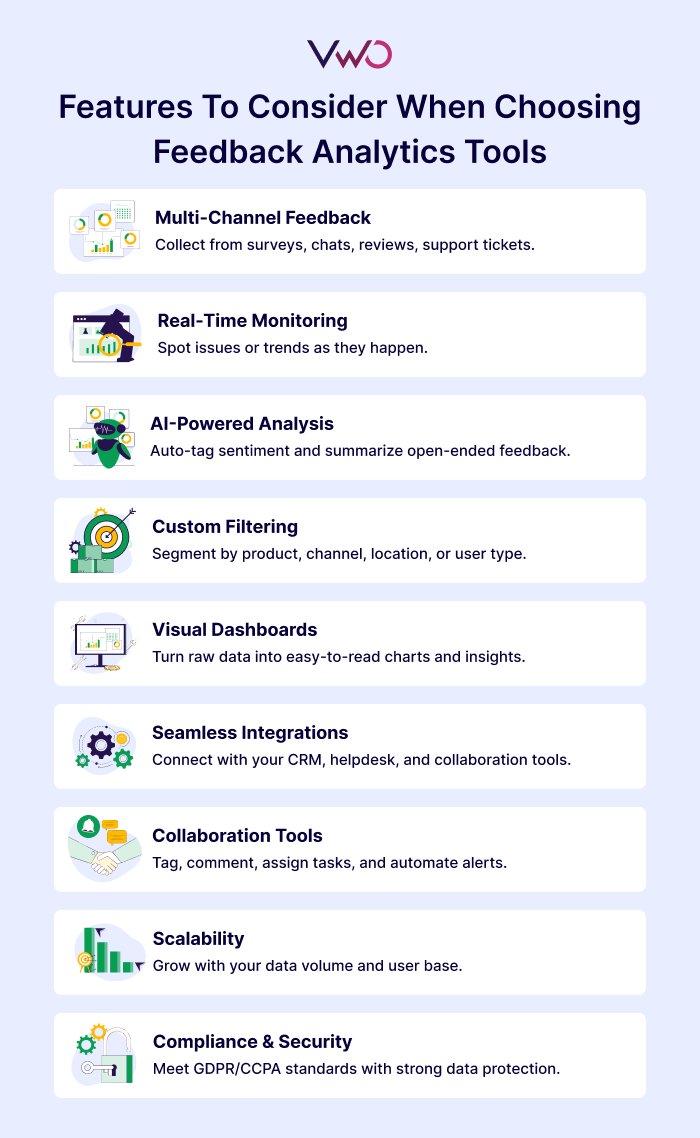
The right feedback analytics tool doesn’t just capture what customers are saying; it helps you understand why they’re saying it and what to do next. From improving product decisions to refining customer experiences, these tools can unlock real business value. To ensure you’re choosing one that meets your needs, here are the essential features to consider:
1. Multi-channel data collection
The tool should support a wide range of feedback sources: surveys, support tickets, social media, online reviews, chat logs, and emails, to give a complete view of customer sentiment across touchpoints.
2. Real-time feedback monitoring
Timely visibility into feedback provides real-time insights that help teams act fast, whether it’s addressing a concern, mitigating churn, or amplifying a positive experience. Real-time analysis ensures feedback doesn’t sit unused.
3. AI-powered analysis & sentiment detection
Look for built-in AI or NLP capabilities that can automatically detect sentiment, surface recurring themes, and summarize large volumes of open-text feedback, saving time and improving accuracy.
4. Custom filtering and segmentation
Advanced filtering by channel, product, location, user type, or device lets you break down insights and spot trends in specific user segments, helping teams prioritize what matters most.
5. Actionable insights with visual dashboards
The tool should transform complex data into clear, visual dashboards, making it easy to interpret results, identify key drivers, and align cross-functional teams around shared insights.
6. Seamless integrations
Integrations with CRMs, help desks, collaboration platforms, and data warehouses ensure that feedback flows directly into your existing systems and workflows, enabling faster responses and better context.
7. Collaboration and workflow support
Feedback is most effective when it leads to action. Tools that support tagging, comments, follow-ups, and automated alerts, along with effective feedback analysis, help teams collaborate and close the loop efficiently.
8. Scalability and flexibility
Choose a platform that can scale with your organization, supporting more users, higher volumes of feedback, and complex data models without compromising performance.
9. Compliance and data security
Ensure the platform complies with data privacy regulations (like GDPR or CCPA) and includes secure access controls, encryption, and data handling protocols to protect customer information.
FAQs
Customer feedback analytics software helps businesses make sense of large volumes of feedback, spot recurring issues or trends, and understand customer needs more clearly. This enables faster response to concerns, smarter prioritization, and continuous improvement across products and services.
Use surveys, chats, review platforms, support tickets, and social media to collect feedback. Then, use analytics tools to categorize, visualize, and interpret the data to drive targeted improvements and enhance user satisfaction.
Start by collecting feedback across channels (surveys, support, reviews), then use analytics software to segment, tag, and interpret responses using sentiment analysis, keyword trends, and visual dashboards.
These tools track metrics like NPS, CSAT, and CES, and analyze open-ended responses to uncover what drives satisfaction or dissatisfaction, offering both quantitative scores and qualitative context. For example, if CSAT drops after a feature update, the software can highlight common themes in user comments, such as confusion or bugs, helping teams pinpoint the cause and take targeted action.
A real-world example is how Netflix uses customer analytics to recommend content. By analyzing viewing habits, search behavior, and user ratings, Netflix personalizes suggestions to keep users engaged. Similarly, Amazon tracks browsing and purchase patterns to tailor product recommendations and improve the shopping experience, showing how data can directly enhance customer satisfaction and loyalty.

